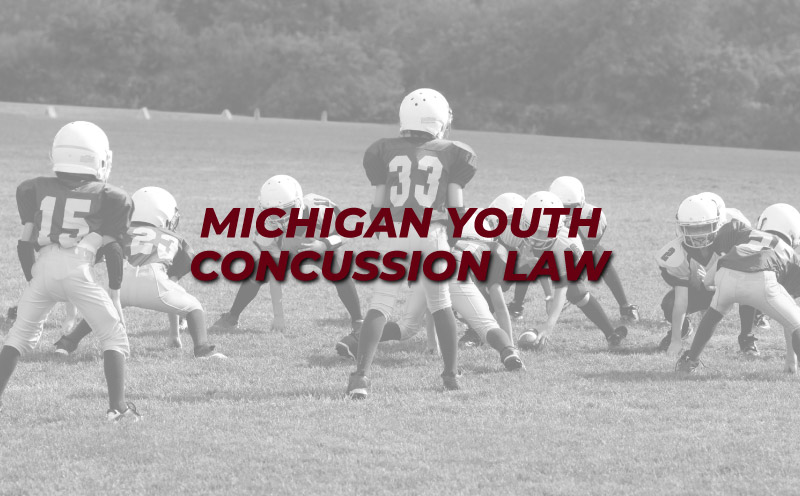Understanding Michigan Youth Concussion Law

As kids across the state return to school for another year, it also means the start of fall sports. When it comes to playing contact sports, one major concern for all parents, coaches, and athletes is the possibility of concussions. So in light of that, Grand Rapids personal injury attorney, Tom Sinas, recently appeared on Fox 17’s “Know the Law” to discuss Michigan youth concussions law and the liability of those overseeing young athletes.
Michigan Youth Concussion Law
In response to a growing concern for the health and safety of youth athletes, in 2012 the Michigan legislature passed the Youth Concussion Protection Statute. That statute outlines criteria for those overseeing youth sports to evaluate for possible concussions in young athletes. Additionally, the statute outlines a specific protocol that sports organizers must follow if there’s a suspected concussion.
That protocol includes:
- Any youth athlete suspected of sustaining a concussion must be removed from play by a coach, employee, or volunteer of the youth sports league.
- If removed, that athlete must then get a professional medical evaluation.
- Written clearance from a medical professional before the athlete can return to play.
Another stipulation of the Youth Concussion Protection Statute requires adults involved in a youth athletic activity to receive training in sports concussions. Additionally, youth athletes and their parents or guardians receive educational information on sports concussions so that everyone involved can lookout for signs and symptoms.
Michigan Youth Concussion Law & Liability
A recent ruling issued by the Michigan Court of Appeals in the case of Randall V. MHSAA became a major win for injured youth athletes, allowing damage claims to be filed in situations where the rules set by the Youth Concussion Protection Statute are not followed. In that particular case, a high school hockey player who allegedly sustained a concussion during a hockey game was not removed from play, as is required, and the player claimed to have sustained another injury. Following this incident, Randall filed suit against Michigan High School Athletic Association and the schools and coaches involved. While the outcome, in that case, will be determined by the trial court, the Court of Appeals’ decision stands for the principle that those who fail to follow Michigan’s youth concussion law can face civil liability for not following the legal protocol.
What Coaches, Parents, and Athletes Should Know About Michigan Youth Concussion Law
Over the last decade, the medical world has learned more information about the long-term effects of concussions and the ability of those brain injuries to lead to other dangerous diseases like chronic traumatic encephalopathy (CTE). Due to brain development, young athletes are more vulnerable to the potential for concussions.
If a concussion is suspected in a youth athlete, that player must be removed from play and evaluated professionally. If you’re someone in a position overseeing youth sports whether it be a coach, trainer, or administrator, you could be liable and face a civil lawsuit for failing to follow the rules on the Michigan Youth Concussion Protection Statute.

